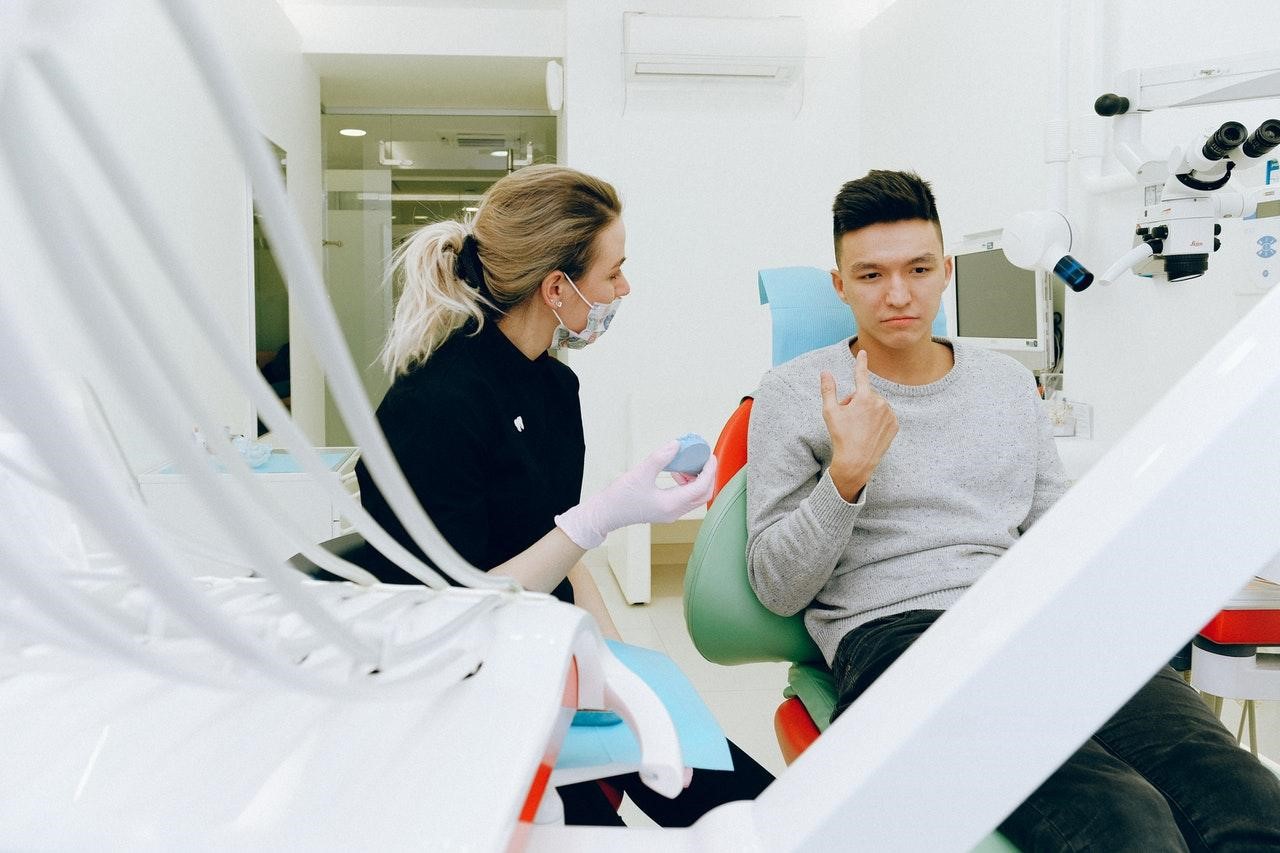Image via Pexels.
Thank you to our guest author, Hazel Bridges. hazel.bridges@agingwellness.org.
Self-care fell to the back burner during the COVID-19 pandemic as families scrambled to navigate shutdowns, school closures, and other disruptions to daily life. At RDHAP Connect we recently discussed how some patients even delayed getting their teeth cleaned due to fears over the pandemic.
As life moves forward, however, it’s important to start caring for yourself once again. Here are four ways you can get yourself organized and back on track for a better 2022.
Get Out of Financial Denial
Are you stuck in financial denial? If the pandemic left you so stressed about money that you stopped paying attention to finances altogether, it’s time to stop ignoring money problems and address them head-on.
Debt consolidation is one strategy to relieve financial stress. But while consolidation keeps monthly payments manageable, it won’t fix anything without a change in spending habits. Put together a budget and payment plan to stop overspending and start making progress on debts.
What if you lost income during the pandemic and your monthly cash flow can’t keep up with expenses? Before downsizing to a more affordable home, find out if refinancing could help you. If current mortgage rates are lower than when you bought, or if your home’s value has risen significantly, refinancing your mortgage with a new loan could reduce your monthly payment and relieve financial pressure.
Stop the Social Media Binge
Financial denial isn’t the only type of escapism people have indulged in during the pandemic. We’ve also spent more time on social media, with 72% of survey respondents saying their social media consumption is up during the pandemic. That’s true even as newsfeeds became “overwhelming,” “stressful,” and an “information overload” during the pandemic.
Social media is great for staying connected, but it’s important to put boundaries around its use to keep social media from becoming a source of stress. Cut back on mindless scrolling by using timers and apps to limit time on social media, decluttering your social media feed by getting rid of content you don’t enjoy, and keeping your phone out of sight, out of mind when doing things that deserve your full attention.
Manage Stress and Comfort Eating
Eating poorly is another bad pandemic habit that people hope to kick. It’s natural to crave comfort foods in times of high stress, but after more than 18 months, waistlines are starting to take note.
Unhealthy diets do more than promote weight gain, however. Poor eating habits disrupt gut health, slow immune function, and impair moods, energy, and concentration. That makes pandemic stress even harder to deal with, so it’s important to get back into healthy eating patterns.
Build your meals around high-quality proteins, complex carbohydrates, and nutrient-rich vegetables. Don’t worry about losing weight right now. Instead, focus on rebuilding the eating habits that help you feel your best. Meal plan and use meal delivery services to close the gap on days you don’t feel like cooking. When you feel the urge to stress eat, use mindfulness to check in with your needs. You might find that a glass of water, a short walk, or a fun distraction satisfies your craving.
Catch Up on Preventive Care
When you’re not taking care of yourself, you’re also less likely to visit the doctor. After extended periods of less-than-healthy behavior, we’re afraid of the bad news we might receive. However, there are some types of care it’s simply unwise to put off. That includes cancer screenings, mental health treatment, follow-ups for chronic illness, and check-ups for new and concerning symptoms.
It also includes dental cleanings. While home care goes a long way to prevent gingivitis and gum disease, it’s not a replacement for cleanings from your dental hygienist. Pressing dental concerns like tooth pain, broken teeth or fillings, or bleeding and swollen gums also shouldn’t be ignored.
Clinicians are taking measures to protect staff and patients from COVID-19 so you can feel confident visiting your dental hygienist. As an added precaution, schedule your dental appointment first thing in the morning or immediately after lunch.
It’s normal for healthy habits and routines to fall to the wayside during times of high stress. However, neglecting your well-being too long leads to bigger problems. As the light at the end of the COVID-19 tunnel grows nearer, get life back on track with these tips and let RDHAP Connect link you with a registered dental hygienist in alternative practice in your community.
https://www.pexels.com/photo/man-in-gray-shirt-having-dental-check-up-3845807/

